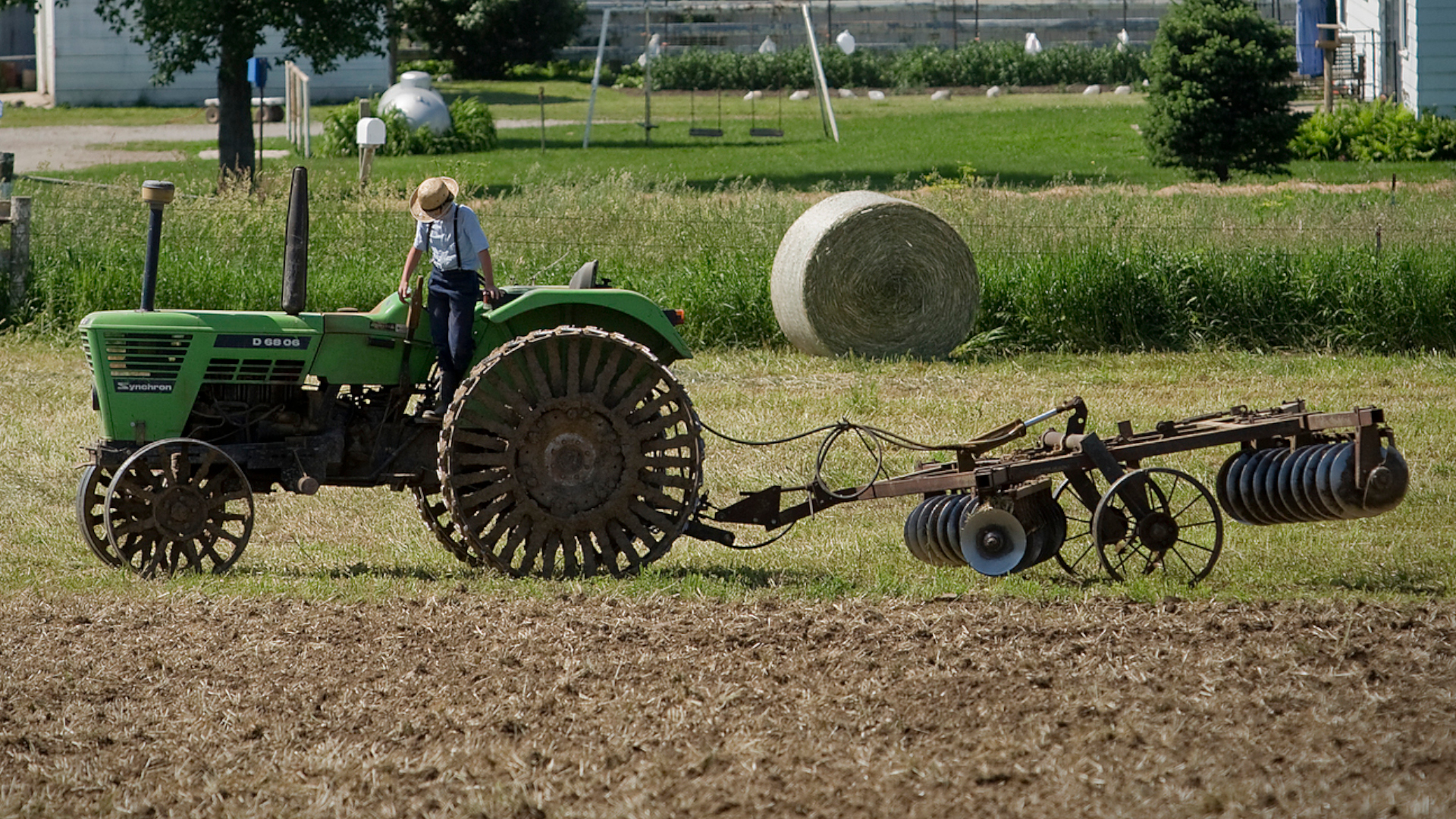

If you’ve driven around the farmlands of the US, you might have noticed Amish or Mennonite farmers running tractors and other farm machines fitted with large steel wheels. Religious rules are behind the strange wheels, which serve in place of typical pneumatic tires.
Many Mennonite and Amish communities do some modern technology, with strict regulations around its use. There are differences between congregations, but most reject the broad concept of the automobile. It’s believed that eschewing cars keeps a community closer together, due to the isolation when the only travel options are by horse, buggy, or on foot. Intrusion from the outside world is also cited as a factor, and is also why many such communities strictly limit the use of telephones and other communications technologies.

In many cases, mechanized agriculture is by no means forbidden. Many groups will use all kinds of large farm machinery, from simple tractors all the way up to full-size combine harvesters. Such machines bring huge labor savings to the farming process. They make it far easier for small rural groups to grow enough food to feed their communities.
However, a tractor could be seen as a tempting substitute in a world where cars are forbidden. To eliminate this possibility, religious doctrine states that farmers must instead fit steel wheels to their equipment. The hard steel wheels make it more uncomfortable to use a tractor on hard surfaces like roads, and discourage its use for general transportation.
The wheels are typically simple spoked affairs, fitting a steel ring instead of a pneumatic tire on the outside. Some farmers fit studs or rubber treads to the steel wheels for additional grip. The key is to avoid the cushioning effect of the pneumatic tire, which religious officials believe would encourage the wholesale use of automobiles in their communities. Specific rules depend on the individual churches involved, but broad sections of the Amish and Mennonite communities have lived by these ideals for some time.


Steven Petersen of Pennsylvania captured some images of local Mennonite farmers using their farm equipment with steel wheels. They’re fitted on all kinds of farm machinery, from small ride-on mowers to large combine harvesters. It’s hard to imagine anyone commuting in a combine harvester, but the harsh ride reduces the temptation, regardless. Steel wheels also never get punctures, which is a nice benefit on the side.
Steel wheels can damage the road surface when tractors are used to haul produce to market. It’s caused issues between religious groups and local authorities in the past. Sometimes, it works out. The Groffdale Mennonites of Iowa signed an agreement with Howard County in 2010, setting aside a small fund to cover road damage from their steel wheels. Other times, the issue has ended up in court, such as a 2012 case from Mitchell County, Iowa.
Stereotypes and reality TV shows have told us that these communities live like it’s the 1600s. Thus, it can be confusing to see famers using hydraulics and combustion engines while eschewing pneumatic tires.
However, to those inside these communities, it’s all a part of the faith. The idea is not to ban technology outright, but to maintain a certain community ethos through the regulation of its use. As far as holy doctrines go, it’s a pretty harmless one, and likely keeps a few extra welders employed, too.
Got a tip? Let the author know: lewin@thedrive.com